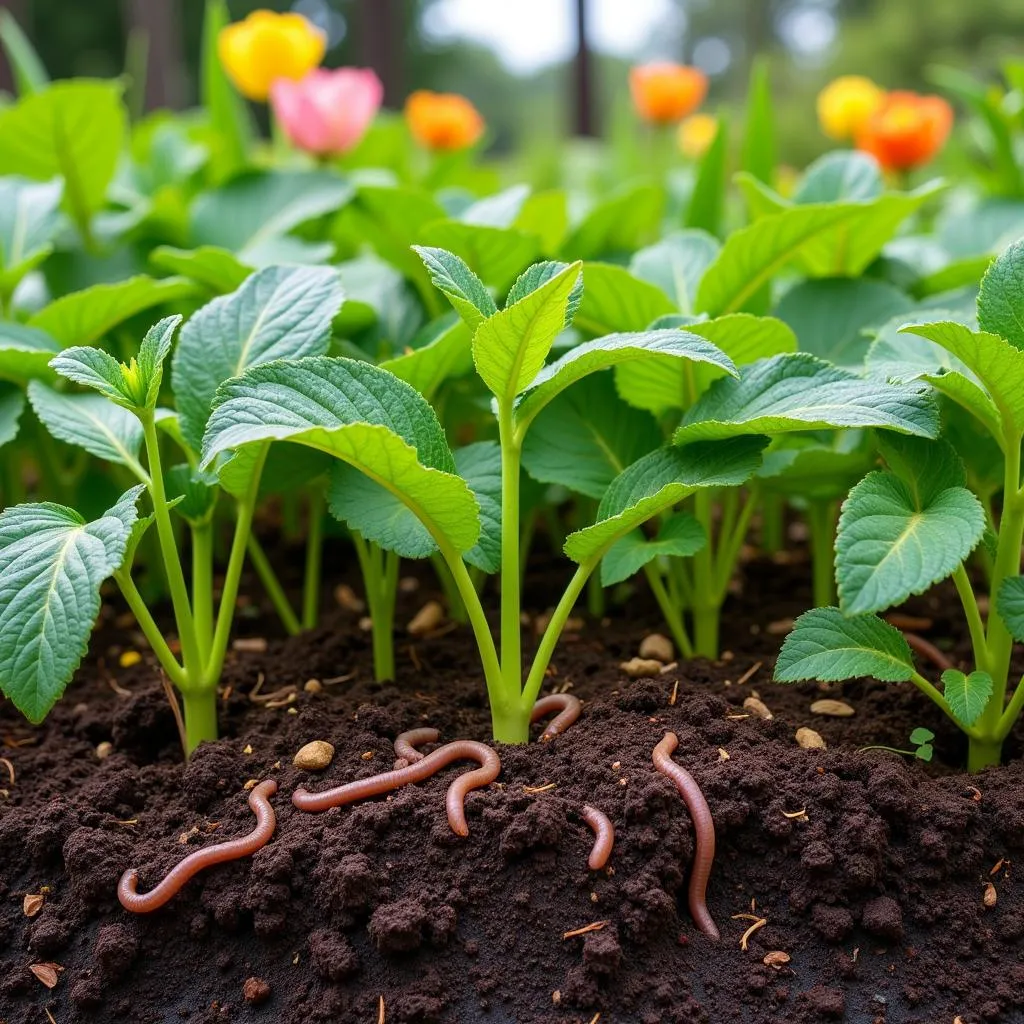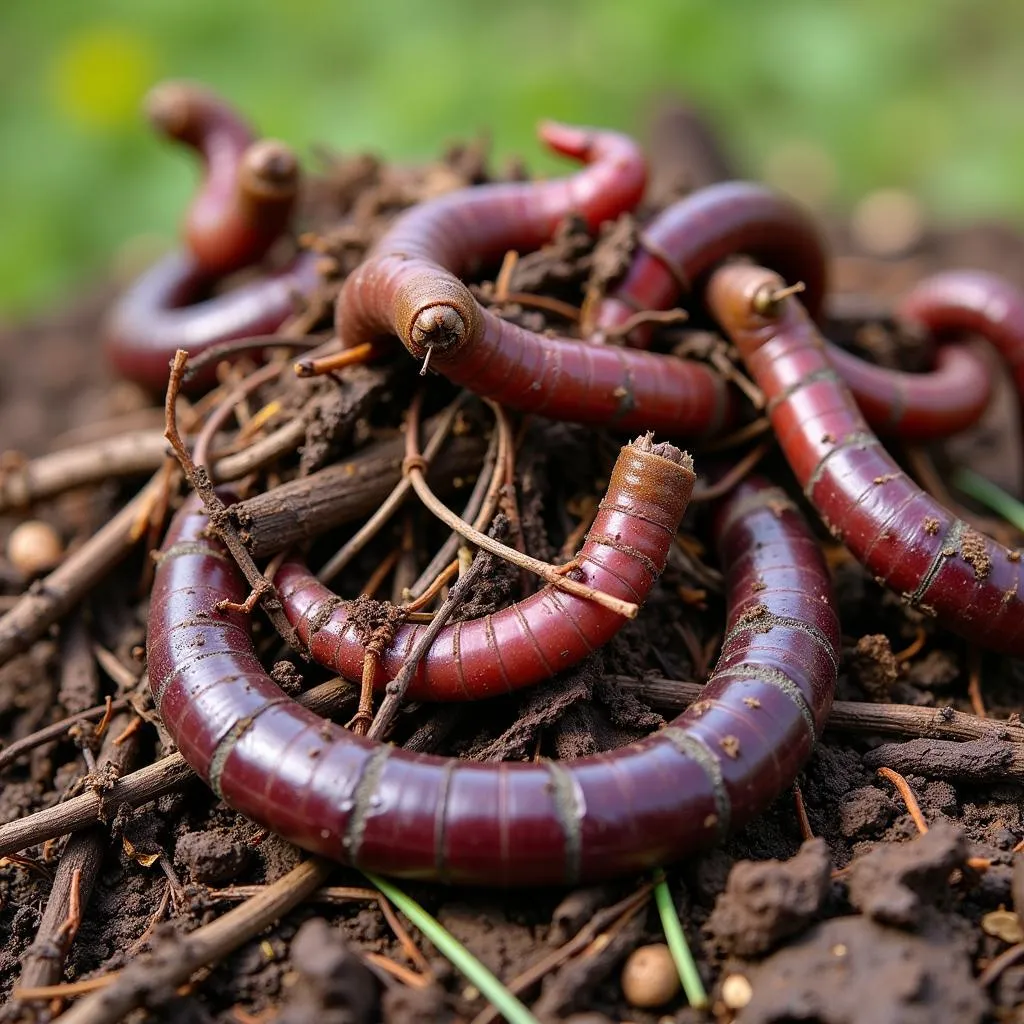African Earthworms for Sale: A Comprehensive Guide for Your Garden
African earthworms are a popular choice for composting and enriching soil, and for good reason. Their ability to break down organic matter quickly and efficiently, along with their beneficial effect on soil structure, makes them highly sought after by gardeners and farmers worldwide. If you’re considering adding African earthworms to your garden, you’ve come to the right place!
This comprehensive guide will explore the fascinating world of African earthworms, covering their benefits, types, care requirements, and where to find them for sale. We’ll delve into the key features that make them an excellent choice for your garden, providing practical information for a successful worm-powered gardening experience.
The Benefits of African Earthworms for Your Garden
African earthworms are known for their numerous benefits, making them valuable allies for any gardener. Here are some of the key advantages:
1. Efficient Composting
African earthworms are voracious eaters and masters of decomposition. They consume a wide range of organic matter, including food scraps, leaves, and even paper, converting them into rich, nutrient-rich compost. This process significantly reduces waste and enriches your garden soil with valuable nutrients.
2. Improved Soil Structure
Earthworms create tunnels and pathways as they move through the soil, improving its aeration and drainage. This allows roots to access more oxygen and water, leading to healthier plant growth. Their castings (worm excrement) are also rich in beneficial microorganisms that enhance soil fertility.
3. Increased Nutrient Availability
African earthworms break down organic matter, releasing essential nutrients like nitrogen, phosphorus, and potassium into the soil. These nutrients are readily available for plant uptake, promoting vigorous growth and bountiful harvests.
4. Reduced Pest and Disease Pressure
Earthworms help control pests and diseases by consuming decaying matter that attracts harmful organisms. They also contribute to a healthier soil ecosystem, making your garden more resilient against pests and diseases.
Types of African Earthworms for Sale
Various types of African earthworms are available for sale, each with its unique characteristics and suitability for specific purposes. Here are a few popular varieties:
1. Eudrilus eugeniae (African Nightcrawler)
The African nightcrawler is a fast-growing, prolific worm known for its excellent composting abilities. It thrives in warm environments and can consume a wide range of organic matter.
2. Perionyx excavatus (Indian Blue Worm)
The Indian blue worm is a smaller species known for its ability to break down tough materials like cardboard and paper. They are also excellent at improving soil aeration and drainage.
3. Eisenia fetida (Red Wiggler)
Red wigglers are a popular choice for composting due to their rapid reproduction rate and efficient composting abilities. They prefer a slightly cooler environment than African nightcrawlers.
Where to Buy African Earthworms
You can find African Earthworms For Sale online or at local garden centers and nurseries. When purchasing, ensure they come from a reputable source that practices sustainable harvesting methods.
Here are some tips for buying African earthworms:
- Check for good condition: Earthworms should be plump, active, and free from any signs of disease or injury.
- Ask for a guarantee: Reputable suppliers often offer a guarantee on their worms, ensuring their health and quality.
- Consider delivery options: Some suppliers offer delivery services, while others require you to pick up your worms in person.
Caring for African Earthworms
African earthworms thrive in specific conditions. Here are some important factors to consider:
1. Moisture Levels
Earthworms require a consistently moist environment, but not overly wet. Aim for a damp, but not soggy, condition in their bedding.
2. Bedding Material
African earthworms prefer a mix of organic matter, such as shredded paper, cardboard, coconut coir, and compost. Avoid using materials like wood chips or sawdust, which can be harmful to worms.
3. Temperature
African earthworms are best suited to temperatures between 65°F and 85°F. Avoid exposing them to extreme temperatures, as this can stress or kill them.
4. Feeding
Feed your African earthworms a balanced diet of organic matter, including food scraps, coffee grounds, tea bags, and shredded paper. Avoid feeding them oily or salty foods.
FAQ:
Q: What is the best way to start a worm bin?
A: To start a worm bin, you’ll need a container with proper drainage and ventilation. Fill it with bedding material, such as shredded paper and coconut coir, and add a small amount of compost. Introduce your African earthworms and begin feeding them a balanced diet of organic matter.
Q: How often should I feed my earthworms?
A: Feed your African earthworms every day or every other day, depending on their consumption rate. Avoid overfeeding, which can lead to rotting and unpleasant odors.
Q: How can I tell if my earthworms are healthy?
A: Healthy African earthworms are plump, active, and have a consistent color. They should be able to move freely and respond to stimuli. If you notice any signs of lethargy, discoloration, or unusual behavior, there might be a problem with their environment.
Q: Can I use African earthworms in my garden?
A: Yes, you can use African earthworms directly in your garden. They will readily burrow into the soil, enriching it with nutrients and improving its structure.
Q: How long do African earthworms live?
A: African earthworms have an average lifespan of 1-2 years, although some species can live longer.
Q: How many African earthworms should I buy?
A: The number of African earthworms you need depends on the size of your garden or worm bin. A general rule of thumb is to start with 1-2 pounds of worms per cubic foot of bedding.
Conclusion
African earthworms are an invaluable asset for gardeners and composters alike. Their ability to enrich soil, break down organic matter, and enhance plant growth makes them a highly beneficial addition to any garden. By understanding their needs and providing them with a suitable environment, you can reap the rewards of these amazing creatures and enjoy a healthier, more productive garden.
 African Earthworms enriching garden soil with nutrients
African Earthworms enriching garden soil with nutrients
 African Earthworms in a compost bin breaking down organic matter
African Earthworms in a compost bin breaking down organic matter
If you have any questions or require assistance, please contact us:
Phone: +255768904061
Email: kaka.mag@gmail.com
Address: Mbarali DC Mawindi, Kangaga, Tanzania
We have a dedicated customer support team available 24/7 to assist you with all your African earthworm needs.


